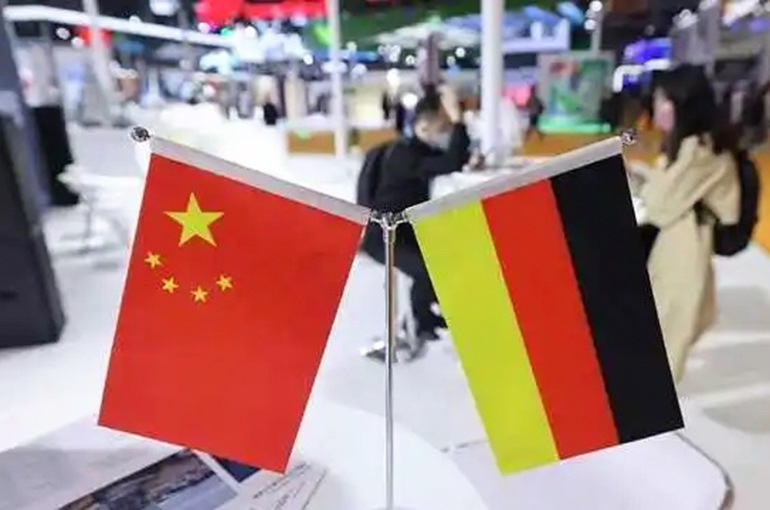 China Is Germany's Third-Biggest Project Investor, GTAI Report Shows
China Is Germany's Third-Biggest Project Investor, GTAI Report Shows(Yicai) May 16 -- Nearly 12 percent of Germany’s new foreign-funded investment projects last year were undertaken by Chinese firms, making China the European country’s third-largest investor after the United States and Switzerland, according to a report by Germany's economic development agency.
Foreign entities launched more than 1,720 greenfield and brownfield investment projects in Germany in 2024, with nearly 200 of them backed by Chinese investors, Germany Trade and Invest said in a recent report.
Greenfield investment refers to the establishment of new operations from the ground up in a foreign country, whereas brownfield investment involves the acquisition of existing facilities.
Despite a broader slowdown in international investment, Chinese investors remained resilient. While the overall number of new foreign projects in Germany fell by 2 percent year-on-year to a total value of EUR23.2 billion (USD26 billion), the number of Chinese-funded projects dropped by just one.
The US ranked first with 229 projects, a decrease of nearly 3 percent from the previous year, followed by Switzerland with 202 projects -- the same number as in 2023.
By industry, Chinese investment was concentrated in electronics and automation, which made up a quarter of all Chinese projects. This was followed by energy and raw materials (21 percent), and transportation and logistics (19 percent).
Within these sectors, Chinese firms are increasingly focusing on areas such as renewable energy, battery supply chains, automotive, medical technology, robotics, and particularly software solutions, noted Thomas Bozoyan, author of the report.
Investors are closely watching the direction of Germany’s new administration. On May 14, Friedrich Merz, Germany’s newly appointed chancellor, delivered his first policy address, emphasizing China’s role as a key partner for Germany and the European Union in addressing global challenges.
Germany has been recalibrating its China policy since the previous administration of Olaf Scholz, and the Merz government is expected to continue along that path, Wu Huiping, deputy director of the German Studies Center at Tongji University, said to Yicai.
Over 30 companies listed in Germany recently submitted a joint proposal to the Merz government, calling for a more pragmatic foreign policy and stronger economic, trade, and investment ties with China, Wu added.
Editor: Emmi Laine